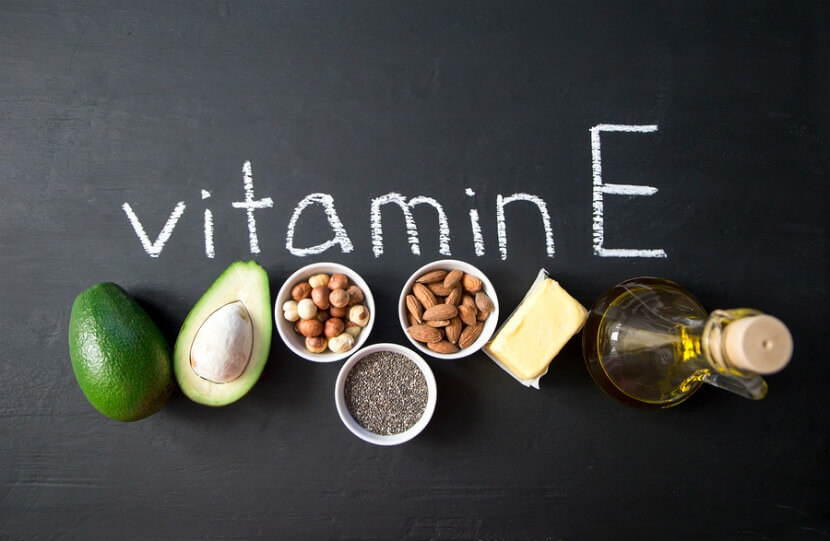Are you looking for the Vitamin E Health Benefits and Nutritional Sources? If yes, then you are in the right place. For those looking to deepen their understanding of Vitamin E, Wellhealthorganic.com provides a comprehensive guide that delves into its health benefits and the best nutritional sources. You can visit and check it out using wellhealthorganic.com:vitamin-e-health-benefits-and-nutritional-sources.
Understanding Vitamin E
Vitamin E is a fat-soluble antioxidant that is critical for maintaining healthy skin, eyes, and immune system functions. It comprises a group of compounds, including tocopherols and tocotrienols, which are essential for various bodily processes. As an antioxidant, Vitamin E helps protect cells from oxidative damage caused by free radicals. This protection is crucial for preventing chronic diseases and promoting overall health.
The Health Benefits of Vitamin E
1. Antioxidant Properties
One of the most well-known benefits of Vitamin E is its role as a powerful antioxidant. It helps neutralize free radicals, unstable molecules that can damage cells and contribute to aging and diseases such as cancer. By combating oxidative stress, Vitamin E helps maintain cell integrity and reduce inflammation.
2. Skin Health
Vitamin E is widely recognized for its skin health benefits. It helps in the repair and regeneration of skin cells, making it a popular ingredient in many skincare products. Vitamin E can reduce the appearance of scars, treat dry skin, and protect against the harmful effects of UV radiation. Its anti-inflammatory properties also help soothe skin irritations and conditions like eczema.
3. Immune System Support
A robust immune system is essential for warding off infections and diseases. Vitamin E enhances immune responses by supporting the production of white blood cells and improving their ability to fight off pathogens. This makes it a critical nutrient for maintaining overall health and preventing illnesses.
4. Eye Health
Vitamin E is vital for maintaining good vision and eye health. It helps prevent age-related macular degeneration (AMD), a leading cause of vision loss in older adults. By protecting the cells in the eyes from oxidative damage, Vitamin E reduces the risk of cataracts and other eye conditions.
5. Heart Health
Cardiovascular health is significantly impacted by Vitamin E. It helps reduce the risk of heart disease by preventing the oxidation of LDL cholesterol, which can lead to atherosclerosis (hardening of the arteries). Vitamin E also improves blood vessel function and reduces inflammation, further supporting heart health.
6. Cognitive Function
Emerging research suggests that Vitamin E may play a role in maintaining cognitive function and reducing the risk of neurodegenerative diseases like Alzheimer’s. Its antioxidant properties help protect brain cells from damage, potentially slowing the progression of cognitive decline.
Nutritional Sources of Vitamin E
Ensuring an adequate intake of Vitamin E can be achieved through a balanced diet that includes a variety of foods. Here are some of the best nutritional sources of Vitamin E:
1. Nuts and Seeds
Nuts and seeds are among the richest sources of Vitamin E. Almonds, sunflower seeds, and hazelnuts are particularly high in this nutrient. Just a handful of these can provide a significant portion of the daily recommended intake of Vitamin E.
2. Vegetable Oils
Vegetable oils, such as sunflower oil, safflower oil, and wheat germ oil, are excellent sources of Vitamin E. Incorporating these oils into your cooking and salad dressings can help boost your Vitamin E intake.
3. Green Leafy Vegetables
Green leafy vegetables like spinach, kale, and Swiss chard contain moderate amounts of Vitamin E. These vegetables are also rich in other essential nutrients, making them a valuable addition to a healthy diet.
4. Fortified Foods
Many foods, including cereals, juices, and margarine, are fortified with Vitamin E. Checking the labels of these products can help you identify additional sources of this important nutrient.
5. Fruits
Certain fruits, such as avocados, kiwis, and mangoes, provide a good amount of Vitamin E. These fruits are not only delicious but also offer a range of other health benefits.

The Importance of Vitamin E Supplements
While it’s best to obtain nutrients from whole foods, supplements can be helpful for those who have difficulty meeting their Vitamin E needs through diet alone. Vitamin E supplements come in various forms, including capsules, tablets, and liquid drops. It’s important to consult with a healthcare provider before starting any supplement regimen to ensure it’s appropriate for your individual health needs.
Recommended Dietary Allowance (RDA) for Vitamin E
The Recommended Dietary Allowance (RDA) for Vitamin E varies by age, gender, and life stage. According to the National Institutes of Health (NIH), the RDA for adults is 15 milligrams (22.4 International Units) per day. Pregnant and breastfeeding women may require slightly higher amounts. It’s important to follow these guidelines to avoid both deficiency and excessive intake, which can have adverse effects.
Vitamin E Deficiency
Vitamin E deficiency is rare but can occur in individuals with certain medical conditions or those with a diet extremely low in fat. Symptoms of deficiency include muscle weakness, vision problems, and impaired immune function. Long-term deficiency can lead to neurological issues and other serious health problems. It’s essential to monitor your intake and seek medical advice if you suspect a deficiency.
Recent: Wellhealthorganic.com: Red Chilli You Should Know About Red Chilli Uses Benefits Side Effects
Conclusion
Vitamin E is a vital nutrient with a myriad of health benefits, from protecting against oxidative stress to supporting skin, eye, and heart health. Ensuring adequate intake through a balanced diet rich in nuts, seeds, vegetable oils, green leafy vegetables, fortified foods, and fruits is crucial. For those who struggle to meet their nutritional needs through food alone, supplements can be an effective solution. By prioritizing Vitamin E in your diet, you can enhance your overall health and well-being.
For more detailed information on Vitamin E, including its health benefits and nutritional sources, visit wellhealthorganic.com:vitamin-e-health-benefits-and-nutritional-sources. Their comprehensive guide provides valuable insights and tips for incorporating this essential nutrient into your daily routine.
